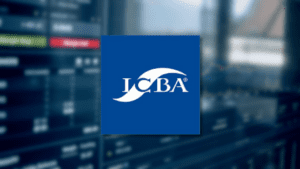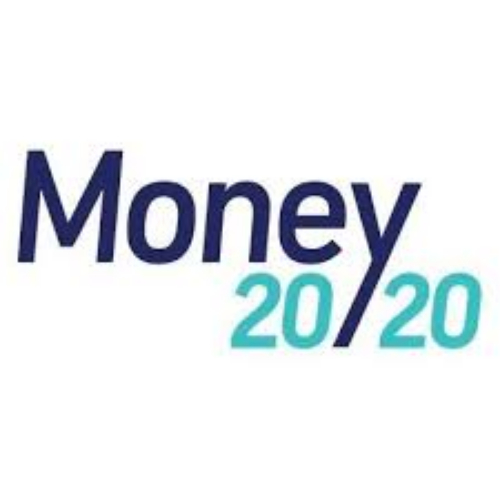Over the last few months, things have changed quite a bit.
Earlier in the year, the general sense was that while there were issues to contend with – like inflation – the delicate balance between economic stability, growth, a return to normalcy post-COVID, and changes in monetary policy could be effectively juggled and maintained without pushing the economy into recession. In other words, the feeling was that while there were a lot of moving parts, the situation was under control.
War and its attendant implications then upended the perception of balance and stability, and there were knock-on effects, most notably fears of an inflationary shock and the potential for policy missteps that could tip the economy into recession, perhaps even purposely. The end result is that a situation that seemed under control two months ago feels much less so today.
The start of the year was perhaps best characterized by Tom Petty’s Into The Great Wide Open – maybe some struggle along the way but also full of possibilities (mostly positive), but just a short time later, we’ve now somehow morphed into feeling as though It’s The End Of The World As We Know It, and not quite feeling sure if, at the end of the day, we’ll even feel ok, let alone fine.
So what does this have to do with Fintech?
As we survey the changed landscape and elevated risk factors that could potentially result in an economic downturn, a few thoughts come to mind:
- First, the vast majority of Fintech credit lenders have never been truly tested in a downturn. And no, COVID doesn’t count, because all lenders (banks too) were bailed out by regulatory forbearance and an avalanche of liquidity (fiscal and monetary) that presumably would not be provided to the same extent in a “normal” recession scenario. Most of these companies didn’t exist during the last credit-led downturn in 2008 and have operated throughout much of their life cycle in a benign credit environment highlighted by historically low interest rates and the longest economic expansion in the post-World War II era.
In mid-February, the investment banking firm Stephens Inc. published a research report which noted that bank partners of certain Fintechs had recently dropped their minimum FICO scores to 300. To be honest, we weren’t aware that FICO scores could trend that low, let alone that a lender would provide credit to a borrower with that credit profile. We’ve also seen reports of asset-backed security issuance halted for some companies, leading to concerns about lenders that are reliant for funding on securitization markets (as opposed to banks that are core deposit funded).
- Second, a few tidbits have caught our attention of late that lead us to question whether underwriting standards have deteriorated at what potentially could prove to be an inopportune time. These developments quite naturally sparked some questions, as follows: In an economic downturn scenario, are there teams with experience in credit workout at these Fintechs? Virtually every model we’ve seen in the Fintech realm is focused on growth, scalability and capturing market share (new customers) at the lowest possible cost. Call us maybe a bit cynical, but it’s at least fair to question if robust credit stress tests, in a severe economic downturn brought on by an inflationary shock, were conducted and factored into P&L forecasts, alongside projected revenue and market share gains. Moreover, in a crisis scenario, what happens to the securitization markets that drive the ability of these companies to fund themselves?
- Third, markets seem to be sending an ominous message, and have been for some time now. Typically, this occurs before the fundamental reason why becomes apparent. Since the peak in late October last year, the Global X FinTech ETF (“FINX”) has declined by nearly 43%, and on a peak-to-trough basis (with the trough occurring in mid-March 2022), it has declined by nearly half in five months. Some individual stocks that were the reference point for the discussion earlier in this report are down by almost 80% from peak levels reached during Q4 2021. This price action is subsequent to talk that we heard for most of last year, which had all the hallmarks of what we’ll call “bubble-speak”. In other words, private capital raises at nosebleed valuations, with each subsequent raise topping the prior one, and valuations based solely on projected revenue and market share gains (with no mention of profitability).
Stakeout potential aside, we think Fintech remains a key component of the future of banking.
To be clear, our concerns at this point solely relate to the direct credit lenders, and perhaps some of their bank partners that are buying/originating this paper in partnership with the Fintech (or retain residual credit risk). Fintechs/banks focused on payments, deposit gathering, building out crypto market infrastructure, etc. should thrive through an economic downturn scenario, absent any stock valuation-related adjustments should there be a market correction. As an example, we think gatherers of low-cost deposits amidst a sharp increase in inflation and interest rates should perform extremely well, particularly if those deposits are uncorrelated to interest rate movements.
In other words, this report is not an attempt to draw what we think is a tired comparison of today’s Fintechs as a group to the “dot com” companies of yesteryear that collapsed in spectacular fashion two decades ago (with the survivors subsequently conquering the world in the decades since). Rather, we’re focused on pockets of potential credit risk in light of changing market conditions, which could result in a shakeout within a specific segment of the group of companies that fall under the Fintech umbrella.
Our longer-term enthusiasm for Fintech and tech-forward banks is undimmed. Having said that, we’ve noted for quite a while now that we see a longer-term convergence of Fintech with the traditional banks as more likely than the outright takeover of the latter by the former. It’s easy during long periods of benign credit to dismiss the value of the regulated banking system and its credit workout capabilities. It’s also tempting to assume that the complete obsolescence of a system whereby a customer calls to make an in-person appointment with a service representative at a cavernous branch location to discuss a loan application that then takes two weeks to process, must be close at hand. Particularly when the “latest and greatest” app from the customer’s preferred provider can seemingly accomplish the same task within thirty minutes from the comforts of a home of office.
Our sense though is that these two worlds will eventually converge somewhere in the middle, melding the convenience, service quality, geographic reach, technological ingenuity, brand identity, and other social and cultural matters of importance to the customer offered by the Fintech with the safety, soundness, core funding stability, and necessary oversight and compliance functions provided by and within the traditional regulated banking system – true convergence of the best of breed.












